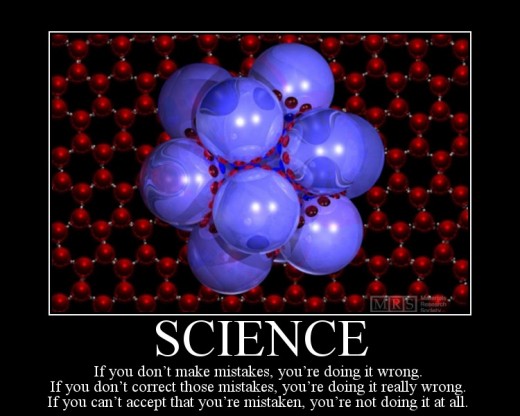Science: Occam's Razor

Occam's Razor: The Law of Succinctness
Entia non sunt multiplicanda praeter necessitatem.
The above states that entities must not be multiplied beyond necessity. The conclusion, of course, is that the simplest strategy or explanation tends to be the best possibly attainable strategy or explanation.
Occam's razor is generally purposed to state that the explanation of any phenomenon should assume as few things as possible and eliminate all observations/facts that attribute no difference whatsoever to the predictions of any theory or explanatory hypothesis.
Occam's razor is not irrefutable logic, neither is it a scientific result of experiments. It is only a general rule of thumb.
Science and Occam's Razor

If Occam's razor were a logical principle, it would demand that scientists always accept the simplest possible explanation for the data which has been collected. However, future collection of data often pushes scientists toward theories which are more complex than the previously assumed theories. Thus, while a simple answer often proves most correct for the time being, it seems that the simplest answer is very often never correct when applied absolutely.
Of course, for Occam's razor to be useful at all, we must assume that the universe in which we live is reliably, naturally and inherently simple. If the universe organizes itself into purposefully complex rules, Occam's razor will do nothing to explain the inherent complexities of it. However, to observe the universe and it's relative simplicity, we, as humans, would be required either to see other examples of existing universes (not presently an option), or to completely leave the universe and view it objectively (also obviously not an option). As such, we must make assumptions about the universe if we are to get anywhere in the field of science.
Probably the biggest thing that Occam's razor has contributed to the field is that it has enabled scientists to remove overly complicated hypotheses which make sense when constructed, but are probably not true. Unfortunately, however, on some occasions, the simplest answer was simply not the way the universe works. Below are some good examples of things that are simply way too complex, according to Occam's razor, to be true.
- meteorites burning up in our atmosphere (magnetic field disturbances are much simpler to comprehend)
- ball lightning (believing that people only see ball lightning when hallucinating would be much simpler to explain away)
- continental drift (believing that all of the continents are stationary is much simpler)
- DNA as the carrier of genetic information. (Proteins carrying our genetic data is a much simpler process to explain)
Unfortunately for scientists determined to find what actually is the case (all of them?), none of the above simple answers ended up being true. However, because of Occam's razor, many of these facts that we know today were often frowned upon because of their inherent complexity. Such usage of Occam's razor has slowed down the process of scientific discovery.







